
16 minute read
Form to Sell Hametz
By Hazzan Jacob Sandler
By the time you’re reading this, we’ll be looking forward to Purim, Passover, Yom Ha’atzma’ut and shortly thereafter, Shavuot. So many wonderful holidays I could write about. Of course as a musician, theater person, and so-called funny guy, I love Purim. However, the calendar offers another, often overlooked observance that has become one of my favorites - Sefirat HaOmer - the Counting of the Omer. From the second night of Passover we count up 7 complete weeks, equaling 49 days and on the 50th day, we celebrate Shavuot, recounting the revelation at Mount Sinai. While the Omer has agricultural origins, collecting a sheaf of wheat each day between the spring harvest and the first fruits of summer, it has since taken on a mystical significance that I’ve found especially meaningful. If you want a more in-depth introduction to Kabbalah and the Omer, consider registering for my spring Continuing Education class,
Advertisement
“Counting The Omer: A Mystical Journey from Liberation to Revelation,” (Mondays,
March 28-May 23 at 8:00 pm) but for now all you need to know is that each of these 7 weeks corresponds to one of the seven lower sefirot of the Tree of Life. Sefirot are like attributes or characteristics of how G-d interacts with creation, and also characteristics we aspire to cultivate in ourselves. They are: Chesed (Loving-kindness), Gevurah (Strength or discipline), Tiferet (Balance), Netzah (Endurance), Hod (Gratitude), Yesod (Connection), and Malchut (Leadership). Every year when the Omer comes, many Jews spend a week ruminating on each of these themes, in that order. And within each week, are seven days to consider how each of the 7 themes are related to the other 6. What does it mean to have enduring kindness? How can we strive to have more balance in our leadership? How do we show gratitude to those we connect with? Every spring, after celebrating the Exodus from Egypt during Passover, we have the chance to take our renewed sense of freedom and begin the process of self-reflection and self-refinement that will open us up to deeper revelation when Shavuot comes. Some of these attributes come naturally to us while others are a real struggle to hold on to. However, as we are made in the Image of G-d, we contain the capacity to embody each one. You can count on that!
Form to Sell Your Hametz
Use this URL to fill out the digital form: https://nssbe.shulcloud.com/form/selling-of-hametz
Detach and send to: Hazzan Barbara Barnett NSS Beth El, 1175 Sheridan Road, Highland Park, IL 60035 to arrive no later than Thursday, April 14, by 5:00 pm. I, (please print name)__________________________________________________________ hereby authorize Rabbi Michael Schwab to act as my agent to sell Hametz that may be in my possession wherever it may be at home, place of business or elsewhere in accordance with the requirements and provisions of Jewish Law.
My home address is: __________________________________________________________ My office address is: __________________________________________________________ Signed:____________________________________________________________________ Date:_________________________ I enclosed $_________ for Maot Chitim (list amount)
Pesach Workshops with Rabbi Alex Freedman Tuesday, April 5, 12:00 pm How Long Were the Jews in Egypt?
It’s a simple question with a complicated answer, which leads to a larger question: what do we do when the Torah seems to give contradictory answers? This class will follow several strands and seek to harmonize these differing answers.
Tuesday, April 12, 12:00 pm The Water That Runs Through Moses’s Life
Water is a dominant literary motif in both the Exodus story and the life of Moses. We will trace the role of water in Moses’s life to understand the character in a new way. Attend one or both on Zoom. Visit the Continuing Education page on the Beth El website for more information and to register.
Sunday, April 10; 10:30 am-12:00 pm Chocolate Seder and Pesach Activities
CRS and the Youth Community are joining together to invite all 2nd-7th graders to join us for a morning of chocolate and activities. Rotate through stations as you make 10-plague kits to use at home, Seder Jeopardy, Breakout EDU, and the always popular, chocolate seder. For students in CRS, this will be part of your school day! Watch your email for registration information or contact Sarah Topal at stopal@nssbethel.org to register.
Museum Reception Tuesday, April 19, 7:00 pm Out of the Narrows: Art from a new Haggadah by the Jewish Artists Collective Chicago
This exhibit, on display in the Rissman Kol
Ami Collection March 25 - June 2022, features handmade silver ritual objects, paintings, woven tapestries, encaustic, collage, printmaking, drawing and digital photography from the new Haggadah, Out of the Narrows by the Jewish Artist Collective Chicago. Participating artists are: Susan Dickman, Dorit Jordan Dotan, Berit Engen, Alan Hobscheid, Ellen Holtzblatt, Judith Joseph, Carol Neiger, Amy Reichert, Beth Shadur and Jane Weintraub.
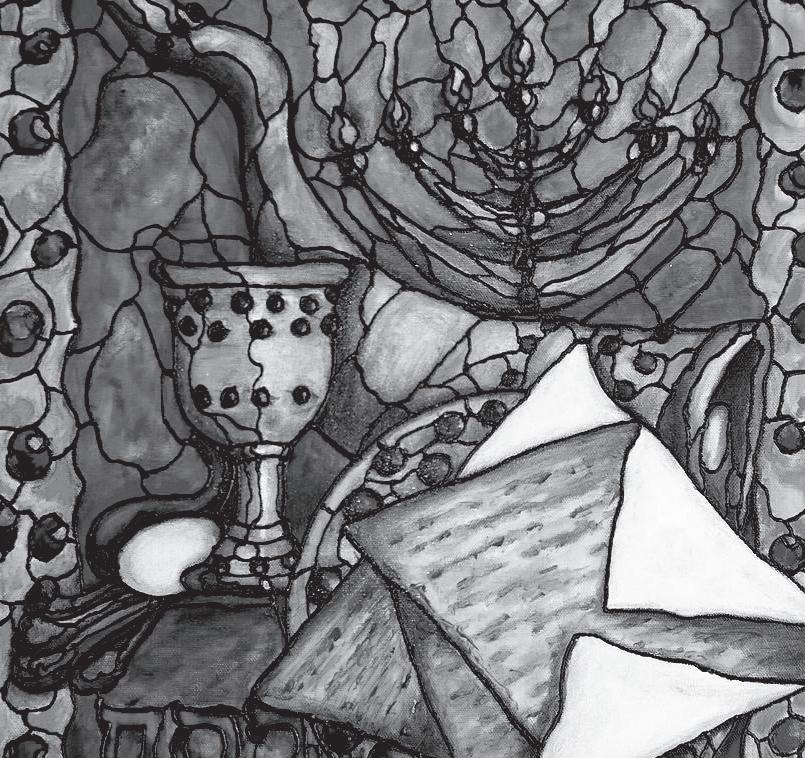
Pesach Service Times
Thursday April 14 - Bedikat Hametz
7:30 am (in person)- Morning Minyan 7:30 pm (in person)-Maariv 8:15 pm- Should search for Hametz at nighttime after.
Friday April 15 - Fast of the Firstborn/Erev Pesach/1st Seder
7:00 am (in person)- Morning Minyan followed by study session/ Siyum Bechorim 10:13 am- Last time to eat Hametz 11:32 am- Should burn Hametz by... 6:00 pm (in person)- Minchah/ Kabbalat Shabbat/Ma’ariv 7:14 pm-Candlelighting
Saturday April 16 - Pesach 1st day/2nd Seder
9:00 am (in person)- Shabbat/Festival Service 8:18 pm- Shabbat ends/Candlelighting for 2nd day 8:20pm (Zoom)-Maariv
Sunday April 17- Pesach 2nd day
9:00 am (in person)- Festival Service 8:19 pm- Yom Tov ends 8:20 pm (Zoom)-Maariv
Monday April 18 - 1st day of Hol Hamoed
Tuesday April 19 -2nd day of Hol Hamoed
WednesdayApril 20 -3rd day of Hol Hamoed
Thursday April 21 -4th day of Hol Hamoed/Erev Yom Tov
Friday April 22 - Pesach 7th day
9:00 am (in person)- Festival Service 7:15 pm (in person)- Kabbalat Shabbat/ Ma’ariv 7:22 pm-Candlelighting
Saturday April 23 - Pesach 8th day/ Yizkor
9:00 am (in person)- Shabbat/Festival Service 8:27 pm Shabbat/Yom Tov ends 8:30 (Zoom) Maariv
Supplement – 2022/5782
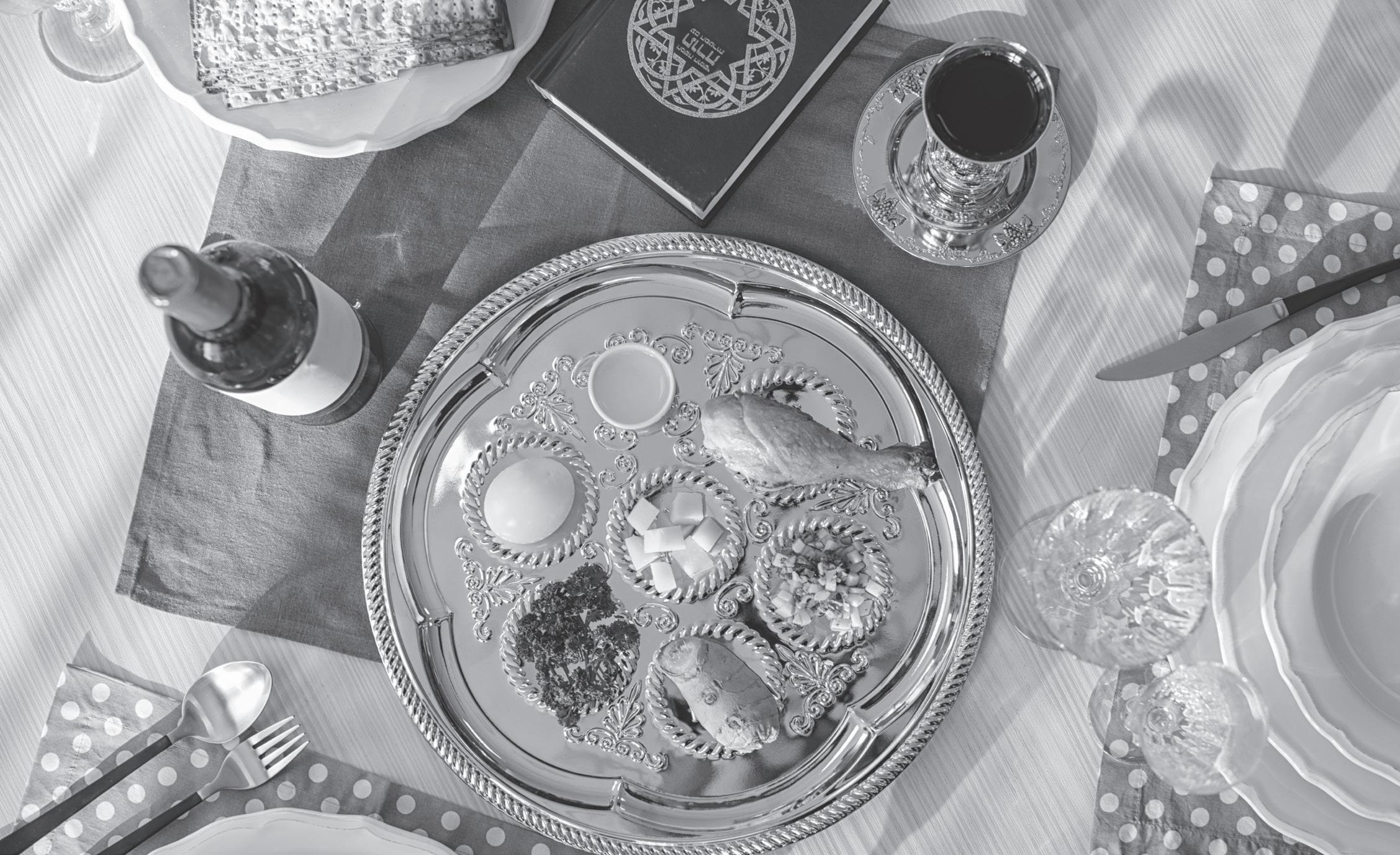
Forbidden Foods
The following foods are forbidden to Ashkenazic Jews during Pesach: leavened bread, cakes, biscuits and crackers; cereals, coffee substitutes derived from cereals; wheat, barley, oats, rice, dry peas, dry beans, and all liquids which contain ingredients or flavors made from grain alcohol. (Sephardic Jews have some different practices.)
Permitted Foods
Requiring no kosher l’Pesach label, the following foods are permitted in unopened packages or containers: natural coffee, sugar, tea, salt, pepper, and fresh vegetables (except peas and beans, although string beans are permitted on Pesach). The following foods are permitted if certified for Pesach use by Rabbinical authority (have a kosher l’Pesach label): matzah, matzah flour, Passover noodles, candies, cakes, beverages, canned and processed foods, milk, butter, jams, cheese, jellies, relishes, dried fruits and vegetables, salad oils, vegetable gelatin, shortening, vinegar. Wines and liquors are permitted if certified by a Rabbinical authority as fit for Pesach use.
Dishes and Utensils
Only dishes and utensils specially reserved for Pesach should be used with the following exceptions: silverware made entirely of metal if used during the year may be used on Pesach if thoroughly scoured and immersed in boiling water. Metal pots and pans used for cooking purposes only (but not for baking), if made wholly of metal, though used during the year, may be used on Pesach. They must first be thoroughly scoured and immersed in boiling water. The utensils should not be used for a period of at least 24 hours between their cleaning and immersion in boiling water. Utensils used for baking during the year cannot be used for Passover. Earthenware, enamelware and porcelain utensils used during the year may not be used. Fine translucent chinaware if not used for a year is permitted if scoured and cleaned in hot water.
Authorities disagree as to the method of kashering drinking glasses. One opinion requires soaking in water for three days, changing the water every 24 hours. The other opinion requires only a thorough scrubbing before Pesach or putting them through a dishwasher. A dishwashing machine may be used for Passover after a thorough scouring, non-use for 24 hours and running a complete cycle. Authorities disagree whether a new tray is necessary. The stove is prepared by a thorough scrubbing and cleansing of all parts, then turning on the ovens and all burners full-flame
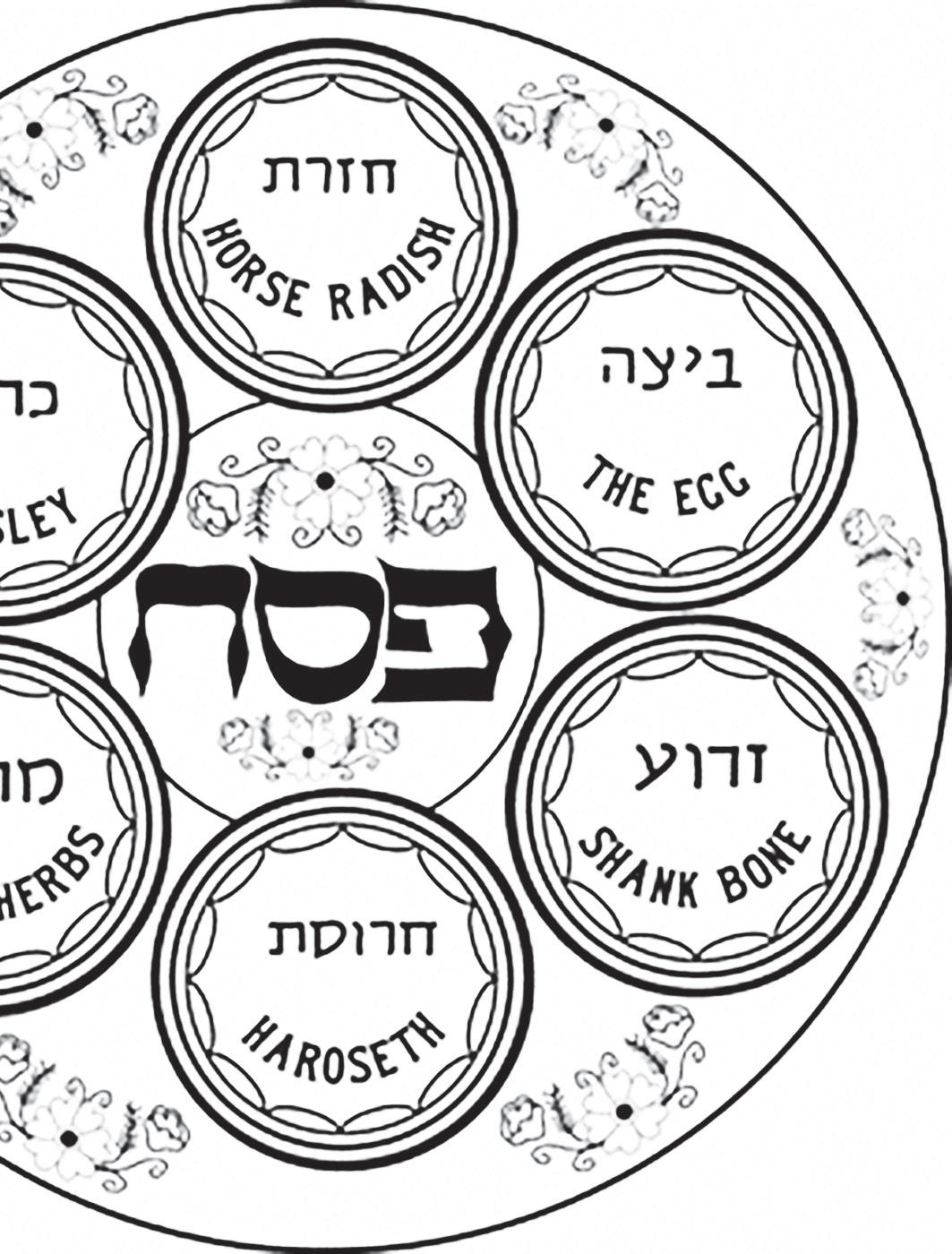
for one half hour. Self-cleaning ovens should be scrubbed and cleaned, then put through the self-cleaning cycle. Continuous cleaning ovens must be kashered in the same manner as regular ovens. Microwave ovens should be cleaned, and then a cup of water placed inside. The oven should be turned on until the water disappears. A microwave that has a browning element cannot be kashered. In all the above cases the appliance cannot be used for 24 hours prior to kashering. If the parts of electrical appliances that come into contact with Hametz are removable, they can be kashered in the appropriate way. If the parts are not removable, the appliance cannot be kashered.
Non-Passover dishes, pots and Hametz whose ownership has been transferred should be separated, locked up or covered and marked in order to prevent accidental use. If you have specific questions, please contact our rabbis.
Bedikat Hametz (The Search For and Burning of Leaven)
On the evening of Thursday, April 14th, the Search for Leaven, Bedikat Hametz, is conducted. This is a ritual that symbolizes the final cleaning of the house of all Hametz. It is customary to place pieces of bread in various rooms around the house before the search begins – remember how many pieces there are and where they are hidden! The search is conducted with a candle for light and a feather and wooden spoon to collect the Hametz. The Hametz, feather and wooden spoon should be put in a bag and set aside to be burnt in the morning. In the morning – this year on Friday, March 26 – after eating our last meal of Hametz, add any remains from breakfast to the bag of Hametz from the previous night, and burn them outside the home. This is the final act of removal of Hametz from our homes. Hametz should be burned by 1:32
am. The appropriate prayers for the search for and destruction of Chametz are found at the beginning of every Haggadah.
Mechirat Hametz (Sale of Hametz)
In addition to the thorough cleaning of the house before Pesach, we are commanded to completely free ourselves of leavened products. Anything made from wheat, barley, oats, rye or spelt, which had a chance to leaven (rise or ferment), must be destroyed. Today a simple but meaningful tradition is followed: • Each Jewish home must be cleaned before Pesach.
• The Rabbi contractually arranges for the sale of the Hametz to a non-Jew so that it will, technically, be out of Jewish possession during Pesach. • At the end of Pesach, everything in your stored-up area will be repurchased for your immediate use. Please see Hazzan Barbara Barnett or use the form on page 12 to sell your Hametz. Please contact Barbara no later than Thursday, April 14th at 5:00 pm. A voluntary contribution should be made upon selling Hametz. All gifts will be added to our Maot Chitim fund.
Maot Chitim (Portions of
Wheat) It is traditional for Jews who have been blessed by the Almighty to make sure that their less fortunate brethren have all that is necessary to celebrate a joyous Pesach. Special funds for this purpose, known as Maot Chitim, are collected in synagogues throughout the world. Beth El participates in this activity. If you would like to make a contribution to the Maot Chitim fund, please mail it directly to the synagogue, or bring it in personally, and earmark it accordingly. These funds will be distributed to the Greater Chicago Maot Chitim and other institutions that provide Pesach food to the less fortunate.
Siyyum Bechorim (Fast of the Firstborn)
The ceremony of Siyyum Bechorim will take place following the morning minyan on Friday, April 15th at 7:00 am. It is customary for the first-born male to fast on the day preceding Passover. In place of the fast, however, tradition developed the practice of concluding a portion of study of a Rabbinic text after which celebration and feasting takes place. The Siyyum Bechorim ceremony is the means of obviating the need for a fast. We encourage all first-born males to attend.
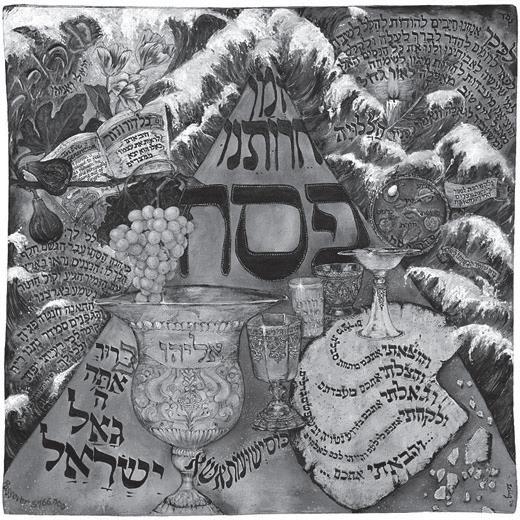
By Rachel Ferber
Many of us know personally, through our family histories, what it is like to be refugees in need of assistance in a new homeland. JCFS Chicago’s HIAS Immigration & Citizenship program will be supporting over 100 people from around the world as they rebuild their lives in the Chicagoland area, beginning with 50 people from Afghanistan in January and early February. The first family from Afghanistan arrived in the Chicago area in early January. A group of congregants from Am Yisrael in Northfield is working with HIAS to ensure the family’s needs are met, that their integration into our community goes smoothly, and that they are on their way to self-sufficiency. When refugees first arrive at their new homes, they rarely have anything more than a single suitcase. They are usually overwhelmed by a new language, new culture, and new environment. Co-sponsorship is an opportunity for our community to work with HIAS to support these families during the first three months in their new homes and communities. Together, we can help them understand and adjust to all that is around them and provide critical financial and social-emotional support. I am hoping several of you will consider joining together to co-sponsor a refugee family. Here is what’s involved.
Each co-sponsor group is asked to complete these steps:
1. Raise a minimum of $10,000 for HIAS Immigration & Citizenship’s Welcome Campaign. 2. Set up their assigned family’s apartment prior to arrival. 3. Support their assigned family for a minimum of 3 months post-arrival.
This includes:
• Providing or purchasing furniture and household goods and setting up the family’s apartment before their arrival • Welcoming the family at the airport upon arrival. • Preparing the family’s first meal and stocking their pantry with culturally appropriate foods (under the supervision of HIAS). • Assigning 3-4 volunteer tutors to work with the family on English language learning and/or homework assistance for school-aged children. • Assigning 3-4 volunteer mentors to work with the family. Mentors may provide transportation to medical and other appointments, help the family locate and access community resources, and support the family with general acclimation and problem solving. To get involved, please send an email to Rachel.ferber@att.net

THE SOCIAL ACTION COMMITTEE PRESENTS: Beth El Annual Mitzvah Day
Sunday, March 6 - 9:00 am - Noon
All Beth El members are invited to participate in our annual Mitzvah Day! The event will kick off with several speakers from local organizations who will share their mission and current initiatives with us. Look for emails in the coming weeks with a variety of opportunities to sign up and participate in many different projects that will help support a variety of organizations in our area. Some of the projects will require buying items to bring with you to the event. Here are some of the participating organizations:

Weekend Fun Kits and Journal Kits
Winter Soup Supplies PLARN (plastic yarn) Mats and Birthday Bags Sign up for Local Refugee Resettlement Support Craft Kits for children
Sign up to support your local neighborhood food pantry
Fleece blankets for hospitalized children Donate a used bike
Additionally, you can help clean-up and organize our Beth El Used Book Sale, make cards for local healthcare workers, and for residents at Gidwitz. Come yourself, or bring the whole family!
It’s All in the Beth El Family
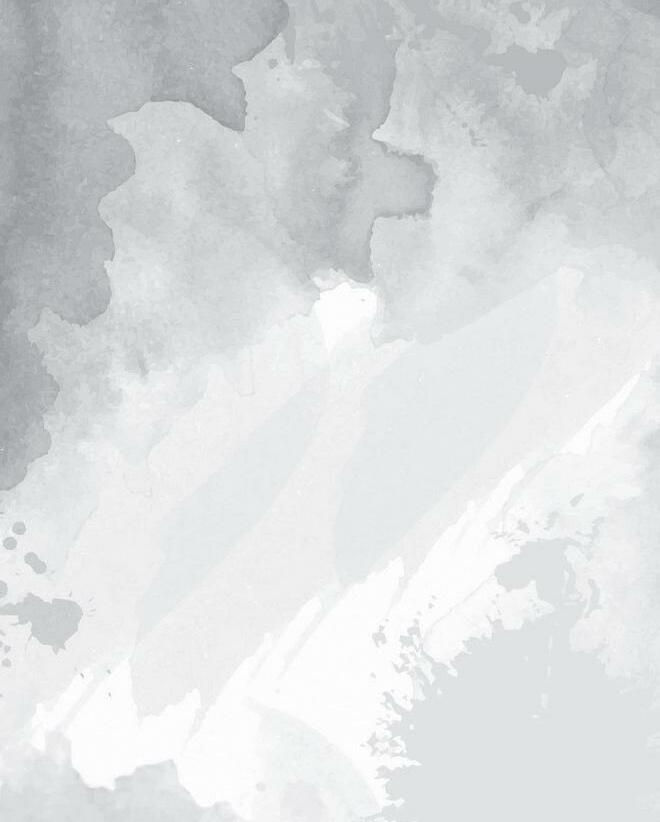
Melanie Axelrod on the occasion of the 20th anniversary of becoming a bat mitzvah Mayer Channon on the occasion of his 3rd birthday Linda Clark on the occasion of her 70th birthday Katie and Matt Doscher on the birth of their baby girl, Julie Elle Roberta and Bob Goldman on the birth of their grandson, Jacob Michael Goldman Ellie Goone and Jordan Bender on the occasion of their marriage Richard Gross on the occasion of his 70th birthday Marlene and Seth Halpern on the occasion of their 30th wedding anniversary Barbara and Stuart Hochwert on the birth of their grandson, and great-grandson of Racquel Hochwert, Eli Lawrence Newman Suzanne and Donald Horwitz on the birth of their granddaughter, Sloane Dot Bradley Joyce Joseph on becoming the 100th Torah reader Mary and Jerry Kaltman on the marriage of their son, Dr. David Kaltman to Rebecca Weissman Debbie and Ira Rosenberg on the birth of their granddaughter, Elana Margo Freeman Sharon and Dr. Michael Rosenberg on the birth of their granddaughter, Zelda Lielle Rosenberg Marissa and Dr. Jonathan Rosenberg on the birth of their daughter, Zelda Lielle Rosenberg Jamie Cooper and Mark Schnitzer on the birth of their daughter, Ruby Maxine Schnitzer Rabbi Ora and Dr. David Schnitzer on the birth of their granddaughter, Ruby Maxine Schnitzer Ari Schwab on the anniversary of becoming a Bar Mitzvah Erica Schwab on the occasion of her birthday Janice and Rick Small on the occasion of their wedding anniversary Barbara Stern on the birth of her great-grandson, Simcha Kupchik Len Tenner on the occasion of the 70th anniversary of becoming a bar mitzvah
Condolences to:
The Family of Dr. Gilbert “Gil” Bogen on their loss Brian (Gail) Boorstein on the loss of his father, Ronald L. Boorstein Elizabeth (David) Copeland on the loss of her father, Edward Samuel Elins Charlene Eilian on the loss of her husband, Pierre Eilian Adam (Leslie) Glazer on the loss of his father, Dr. Victor M. Glazer Suzanne (Donald) Horwitz on the loss of her sister, Rochelle Claire Miller Susan Hoseman on the loss of her husband, Daniel Hoseman Nancy Lerner on the loss of her stepfather, Selwyn (Shlomo) Zun Elaine (Jeffrey) Oberlander on the loss of her father, Myron H. Fox Carol (Dr. Michael) Rosenberg on the loss of her father, Leon Gurny Richard A. Rosenfield on the loss of his wife, Barbara Rosenfield Ira (Sandy) Rosenthal on the loss of his mother, Leah Rosenthal Rachel (Alan) Russo on the loss of her father, Saul Silverstein David (Susie) Sherman on the loss of his father, Leonard Sherman The family of Irvina Warren on their loss Todd (Lisa) Warren on the loss of his father, Michael B. Warren Danielle (Brian) Weinstein on the loss of her father, Marvin Raymond Litt
IN MEMORIAM:
Dr. Gilbert “Gil” Bogen Pierre Eilian Daniel Hoseman Barbara Rosenfield Leonard Sherman Saul Silverstein Irvina Warren
Kiddush Co-Sponsors:
Mary and Ben Channon Katie and Matt Doscher Jennifer and Todd Deutch Marcie and Derek Faust Era and Ben Green June and Richard Gross Melissa and Todd Halperin Jennifer and Josh Herz Rebecca and Brian Jacobson Michelle and Jeff Leon Kim Levy Allyson and Andrew Marcus North Suburban Beth El Sisterhood North Suburban Synagogue Beth El Men’s Club North Suburban Synagogue Beth El Team Torah Holly and Jonathan Reinsdorf Jennifer and Paul Schmidt Erica and Rabbi Michael Schwab Bobbie and Len Tenner Anya and Victor Viner Leslye and Brian Whittman



